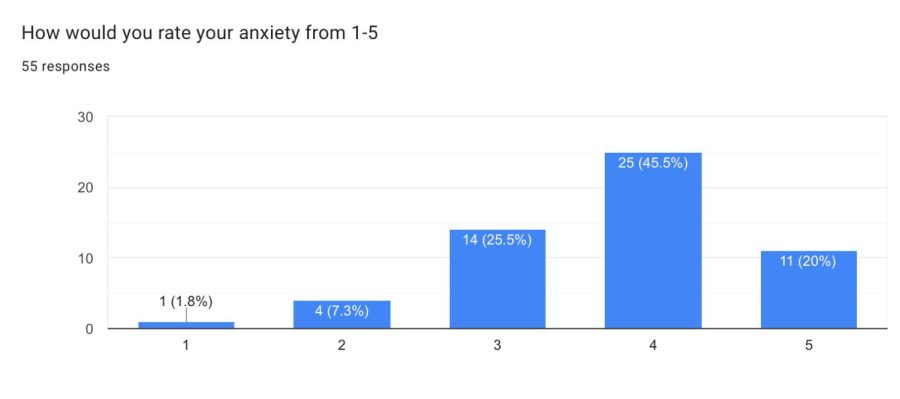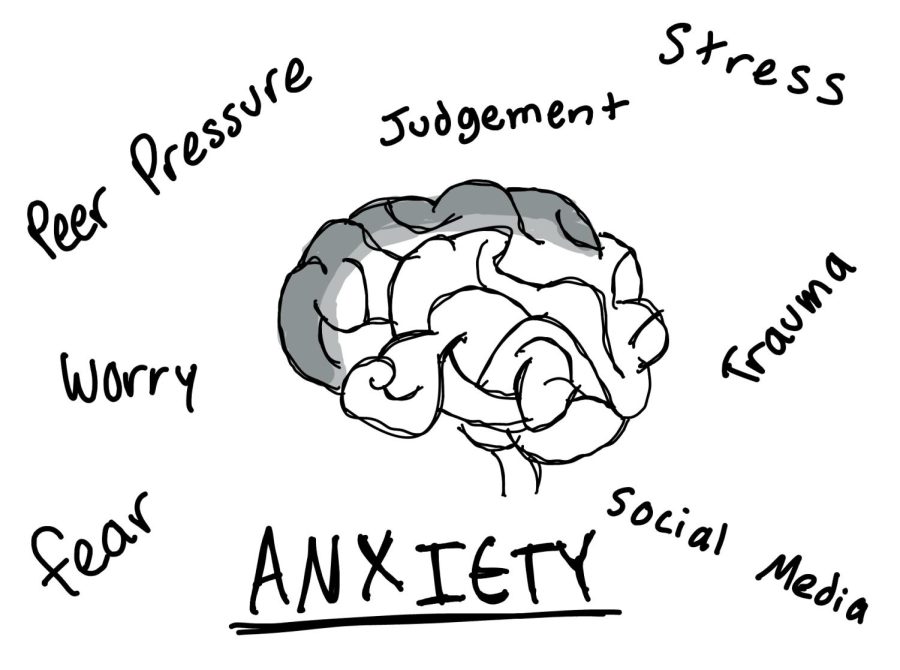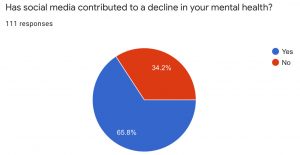Anxiety attacks: student anxiety at Norwin
There are many things that can add to anxiety, such as judgement, social media, peer pressure, trauma, worry, fear, and stress.
You know how it feels when you have a test coming up and all you can do is worry. The feeling that everything will go wrong even though there is no evidence of such happening. Your stomach hurts, you feel drained, and your heart is beating in your head. This feeling lasts until after you take the test, and even though it ends, it feels like the worst thing in the world during the moments you feel it.
This is called anxiety. Everyone feels it, but some people have to deal with excessive, intense, and persistent feelings of anxiety every day. These people exist all around the globe, not stopping at the Norwin High School doors.
At Norwin, there are many causes of anxiety, including workload, clubs, homework, expectations, difficulty, and simply a biochemical imbalance. These factors can tamper with the ability of students to effectively do work and feel good, which could be a major problem. Anxiety is a problem in the world, and trying to find out why and ways to alleviate such issues is important for Norwin students.
A survey done every year by Higher Education Research asks incoming college freshmen if they feel overwhelmed by all they have to do. In 2016, 41 percent of students said “yes” compared with 28 percent in 2000 and 18 percent in 1985. Also, according to the National Institutes of Health, nearly 1 in 3 of all adolescents ages 13 to 18 will experience an anxiety disorder.

As shown by this data, anxiety is a large issue that is multiplying every year. Globally, there are more kids with anxiety than ever before, and this often translates to students and their school lives.
According to a recent Norwin poll of 50+ random students, 37 percent of poll-takers have diagnosed anxiety, with 67.3 percent saying they get overly anxious due to school-related reasons.
So to put it in simple terms: Anxiety is a problem around the world and at Norwin. The reasons for that can include grades, sports, and preexisting mental issues.
”I get a lot of anxiety about trying to balance my school life, sports life, and myself mentally,” said a Norwin freshman. “A lot of the time I beat myself up for getting bad grades and it causes a lot of anxiety for me, having to constantly worry about getting A’s on assignments. This affects me a tremendous amount as a person. Sometimes, I will be up all night worrying about school related things and it will cause me to feel physically sick the next day as well as mentally drained.”
What this student is saying is that feeling mentally and physically drained is common and caused by multiple anxiety-inducing things. Another cause for anxiety can be expectations from others. These expectations can be imposed by family, friends, peers, or teachers. High expectations from others can seem unfair to those experiencing it, especially when those people are still in high school.

”The expectations I face give me a lot to live up to and sometimes set unachievable standards for what a 17 year old can do not only with school but also with activities and job related expectations beyond what’s listed on paper,” said a Norwin senior.
Along with grades, preexisting mental issues, and expectations from others, a big cause of anxiety for some people at Norwin is the demanding nature of clubs, sports, and extracurriculars.
Students who took a Norwin poll were asked what makes them the most anxious, to which a male sophomore replied with clubs, sports, and extracurricular activities: “I am involved in some of the most time consuming clubs in the school, and this leaves me with less time to finish my schoolwork,” the sophomore said. “I oft feel very drained and unmotivated.”
There are many more things that cause anxiety in Norwin students, but what is most important is finding out how to help students. Norwin has support systems in place already, but some think there should be more offered or simply do not know about what is offered.
“To assist students with anxiety, it can be helpful to find some sort of coping strategy that works for that individual,” said Norwin high school psychologist Mrs. Brianna Mainwaring. “For example, some students find mindfulness activities to be very helpful at appeasing feelings of anxiety. Mindfulness activities assist people in grounding themselves in the here and now.”
With this in mind, it is important to understand the role of the guidance counselors and psychologists that are employed at Norwin.
”My role is not primarily to work with students with anxiety,” said Mainwaring. “That said, if I am working with a student that is experiencing anxiety, we talk through what the concern is and try and problem solve and trial potential skills that may help the student.”
Some students have more ideas as to what Norwin is and is not doing to support anxiety. Students were asked if they feel Norwin supports their anxiety levels currently and what they could do to support them further.
“They [Norwin] try to help, but if I’m being completely honest they don’t support my anxiety levels,” a female freshman replied. “I feel like the first step in helping them support students’ anxiety levels is explaining to the teachers and helping them understand how much of an impact that they have on us not just mentally, but physically too.”
The impact on students that others have is important in understanding the way students get anxious. Ways others interact with students with anxiety can help or hurt their anxiety levels. Overall, there needs to be a change to the way things are for student anxiety levels to go down.
Anxiety is a major issue in the world, and it is not going away. But if there are ways to help students at Norwin, to help students who are struggling with anxiety locally, there could be hope for helping others around the world feel less anxious and more content with themselves. A major way to minimize anxiety is to face it head on and find coping strategies to alleviate it; as anxiety attacks students, students need to attack anxiety.

Theo is a second-year writer and a senior at Norwin High School. He is the co-President of the Knight Krier and is involved with the Stage Crew, Spanish...
















